★★½
“The long climb up.”
 This is another one in the apparently endless series of low-budget urban movies, which focus on crime in the black community. Though this does actually have a couple of wrinkles which make it stand out, if not quite enough to make it a success for a wider audience outside its community. Columbus, Ohio is the setting, where Princess (Godsey) is struggling to make ends meet. She’s relying on handouts from her dodgy brother, Dae Dae, to make rent, and also wants to get her best friend away from her pimp. Opportunity comes knocking, in the shape of an Uber driver, Omar (Campbell), who brings her on board in his business, which he tells her has almost unlimited upside and growth potential.
This is another one in the apparently endless series of low-budget urban movies, which focus on crime in the black community. Though this does actually have a couple of wrinkles which make it stand out, if not quite enough to make it a success for a wider audience outside its community. Columbus, Ohio is the setting, where Princess (Godsey) is struggling to make ends meet. She’s relying on handouts from her dodgy brother, Dae Dae, to make rent, and also wants to get her best friend away from her pimp. Opportunity comes knocking, in the shape of an Uber driver, Omar (Campbell), who brings her on board in his business, which he tells her has almost unlimited upside and growth potential.
to the movie’s credit, this isn’t the usual drug-dealing we’ve seen so many times before. While the specifics were a bit vague, it seems Omar is working on white-collar crime, syphoning off company payroll. His associate on the West coast, the appropriately named Cali (Bosley), is planning a hostile takeover, and brings Princess on board. Omar gets wind of this, only for Princess to turn the tables, leaving her boss for dead. That brings us to phase two of the movie, where Princess is now in charge of a nationwide enterprise. However, to no great surprise, it is not as easy as that, not least because Omar is still alive, and unhappy about the situation, to put it mildly.
To start with the positives, Godsey is a good actress, and indeed, most of the cast are solid enough, when their performances are given room to breathe. The first half of this, depicting Princess’s rise to the top, may be small scale, but is effective. I do have some questions though: for example, the reason why multi-millionaire entrepreneur Omar is working as an Uber driver, is never convincingly explained. However, the budget here is entirely incapable of depicting the lifestyle of Princess once she has reached at the top. It needs yachts, big cars, lavish apartments, etc. and the film never delivers. It feels like she’s probably still living in the same crappy apartment she inhabited at the beginning of the movie.
That’s far from uncommon: I’ve seen many similar films whose ambitions did not live up to their resources. A bigger problem, however, is the soundtrack. It feels simply like the director left his Spotify account on random, with one of an endless selection of songs written and performed by his mates, blasting every three minutes. There seems to have been little or no attempt to choose the songs to fit the needs of the scene, and they are far more often a jarring distraction. Occasionally, we get some sequences where Campbell does exercise restraint, opting for stock music instead, and these are inevitably better. But I’m not averse to Campbell overall, who shows enough talent, along with his lead actress, that they will be worth keeping an eye on going forward.
Dir: Dom Campbell
Star: Courtney Godsey, Dom Campbell, Kenneth Bse Count Bosley, Vivica Cartier





 ★★½
★★½ After the success of Bloody Mama, producer Roger Corman wanted to follow up with another film depicting lawlessness in the Depression. He found his source material in Sister of the Road, supposedly the autobiography of a thirties drifter called Boxcar Bertha. No such one person actually existed: it was assembled by the author, Dr. Ben L. Reitman, from multiple characters he met while helping women in trouble in Chicago (a fictionalized version of the doctor may appear in the movie). Corman hired the then almost unknown Martin Scorsese, who was directing his first commercial film; its predecessor, Who’s That Knocking at My Door, grossed only $16,085. Scorsese was given a schedule of 24 days and a budget of $600,000.
After the success of Bloody Mama, producer Roger Corman wanted to follow up with another film depicting lawlessness in the Depression. He found his source material in Sister of the Road, supposedly the autobiography of a thirties drifter called Boxcar Bertha. No such one person actually existed: it was assembled by the author, Dr. Ben L. Reitman, from multiple characters he met while helping women in trouble in Chicago (a fictionalized version of the doctor may appear in the movie). Corman hired the then almost unknown Martin Scorsese, who was directing his first commercial film; its predecessor, Who’s That Knocking at My Door, grossed only $16,085. Scorsese was given a schedule of 24 days and a budget of $600,000.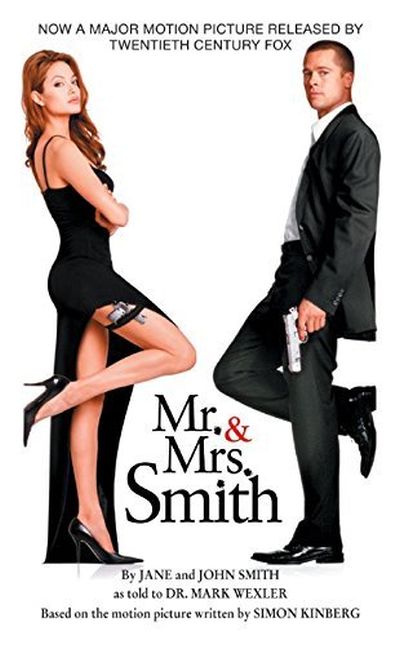 Cathy East Dubowski is a professional writer, who apparently specializes in both YA and grown-up movie novelizations. This is apparently her best-known one (and my only exposure to her work). To her credit, she attempted a fresher approach here than simply re-telling the screenplay in third person. The movie used the frame device of the couple’s visits to a marriage counselor. Here, the author begins the book with the counselor’s notes and transcripts from his initial sessions with the Smiths, both together and separately; the main body of the story is their alternating journal posts which the counselor asked them to write, without necessarily showing the text to anyone else. IMO, this works well; we get inside both their heads, and understand them and their feelings. (One reviewer complained that the technique makes for “repetition,” but I didn’t find this to be a problem. While they’re often describing the same events, their different perceptions of them are very revealing, and as such anything but boring.)
Dubowski follows the movie fairly well (I could spot some minor differences, but though my memory of the film isn’t as sharp now as it was right after watching it seven years ago, I could also recall a good many scenes and lines of dialogue). The main difference is that the bad language in the book is much worse than in the original. There, I don’t recall it as very noticeable (and I would have picked up on that sort of thing), though the PG-13 rating is in part for “brief strong language.” Here, it’s not brief, and there’s a lot of it, including the f-word and religious profanity; I found most of this gratuitous. (Otherwise, the content issues aren’t problematical; there’s implied –actually, stated– sex, some of it premarital, but nothing explicit, and while the violence level is through the roof, it’s not really gory and is so over-the-top it’s hard to take seriously.
The same could be said for both the movie and the book in general.) A lot of plot points aren’t really credible; it’s difficult to go into detail without spoilers, but I didn’t think any of the decisions by the couple’s superiors were believable, Benjamin Danz’s role didn’t logically make sense, and I couldn’t imagine any real-life assassins reacting to the situation of discovering another hitter targeting the same mark the way this pair did. Also, the carnage in the highway chase scene would have resulted in police attention long before it concluded; and I thought the ending was way too pat. The causes of the couple’s estrangement over the years also aren’t really brought out and explained.
Objectively, given all of these shortcomings, in terms of its literary worth the novel doesn’t deserve more than two stars. Three was a gift; but it’s one I’m subjectively willing to give, just because I honestly did like the book, to a degree. The reason I did is for the strength of its depiction of a couple who honestly do love each other, and who are willing to fight both external dangers and their own inner anger and misunderstandings, in order to hang on to and recapture the bond that drew them to each other in the first place. And it’s made clear that a big part of doing that is learning to be honest with each other, to be themselves without playing a role, to communicate and give your entire commitment to the relationship. That aspect of the book, even though the story is told with a significant leaven of humor, is in itself as serious as can be, and applies to all marriages, whether the partners both happen to be contract assassins or not. And despite their faults, I had the sense that both main characters were essentially decent human beings, whom I did care about and want to see succeed in their married life.
Author: Cathy East Dubowski
Publisher: Harper; available
Cathy East Dubowski is a professional writer, who apparently specializes in both YA and grown-up movie novelizations. This is apparently her best-known one (and my only exposure to her work). To her credit, she attempted a fresher approach here than simply re-telling the screenplay in third person. The movie used the frame device of the couple’s visits to a marriage counselor. Here, the author begins the book with the counselor’s notes and transcripts from his initial sessions with the Smiths, both together and separately; the main body of the story is their alternating journal posts which the counselor asked them to write, without necessarily showing the text to anyone else. IMO, this works well; we get inside both their heads, and understand them and their feelings. (One reviewer complained that the technique makes for “repetition,” but I didn’t find this to be a problem. While they’re often describing the same events, their different perceptions of them are very revealing, and as such anything but boring.)
Dubowski follows the movie fairly well (I could spot some minor differences, but though my memory of the film isn’t as sharp now as it was right after watching it seven years ago, I could also recall a good many scenes and lines of dialogue). The main difference is that the bad language in the book is much worse than in the original. There, I don’t recall it as very noticeable (and I would have picked up on that sort of thing), though the PG-13 rating is in part for “brief strong language.” Here, it’s not brief, and there’s a lot of it, including the f-word and religious profanity; I found most of this gratuitous. (Otherwise, the content issues aren’t problematical; there’s implied –actually, stated– sex, some of it premarital, but nothing explicit, and while the violence level is through the roof, it’s not really gory and is so over-the-top it’s hard to take seriously.
The same could be said for both the movie and the book in general.) A lot of plot points aren’t really credible; it’s difficult to go into detail without spoilers, but I didn’t think any of the decisions by the couple’s superiors were believable, Benjamin Danz’s role didn’t logically make sense, and I couldn’t imagine any real-life assassins reacting to the situation of discovering another hitter targeting the same mark the way this pair did. Also, the carnage in the highway chase scene would have resulted in police attention long before it concluded; and I thought the ending was way too pat. The causes of the couple’s estrangement over the years also aren’t really brought out and explained.
Objectively, given all of these shortcomings, in terms of its literary worth the novel doesn’t deserve more than two stars. Three was a gift; but it’s one I’m subjectively willing to give, just because I honestly did like the book, to a degree. The reason I did is for the strength of its depiction of a couple who honestly do love each other, and who are willing to fight both external dangers and their own inner anger and misunderstandings, in order to hang on to and recapture the bond that drew them to each other in the first place. And it’s made clear that a big part of doing that is learning to be honest with each other, to be themselves without playing a role, to communicate and give your entire commitment to the relationship. That aspect of the book, even though the story is told with a significant leaven of humor, is in itself as serious as can be, and applies to all marriages, whether the partners both happen to be contract assassins or not. And despite their faults, I had the sense that both main characters were essentially decent human beings, whom I did care about and want to see succeed in their married life.
Author: Cathy East Dubowski
Publisher: Harper; available 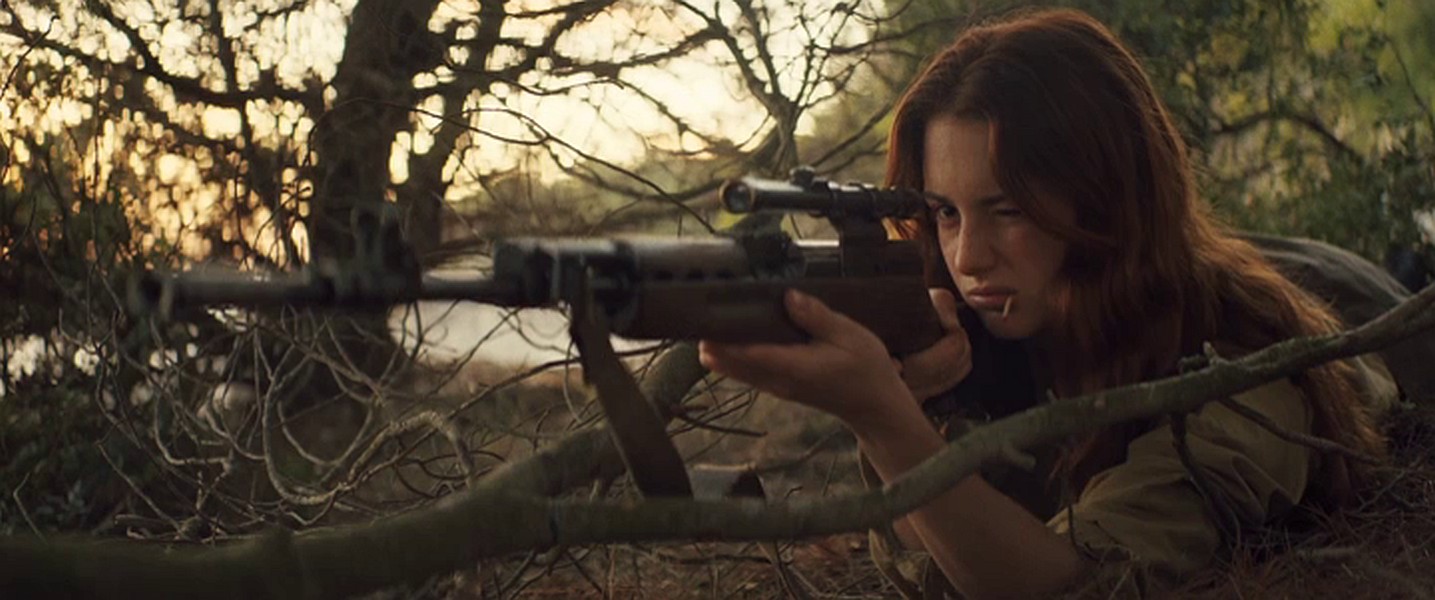 ★½
★½ I never considered myself to be afraid of heights. I respect them, sure. But I am capable of going up the ladder to change that annoying smoke alarm battery without a safety net. This film though, literally gave me sweaty palms. It’s about climber Becky Connor (Currey) who lost her husband Dan (Gooding) in a rockface accident a year before, and has spiralled down into alcoholism and depression since. Her father (Morgan) gets her best friend Shiloh Hunter (Gardner) to intervene, and she convinces Becky the best thing is to get back on horse, with a climb of a two thousand feet tall, abandoned TV mast.
I never considered myself to be afraid of heights. I respect them, sure. But I am capable of going up the ladder to change that annoying smoke alarm battery without a safety net. This film though, literally gave me sweaty palms. It’s about climber Becky Connor (Currey) who lost her husband Dan (Gooding) in a rockface accident a year before, and has spiralled down into alcoholism and depression since. Her father (Morgan) gets her best friend Shiloh Hunter (Gardner) to intervene, and she convinces Becky the best thing is to get back on horse, with a climb of a two thousand feet tall, abandoned TV mast.  The journey up is where the moist hands started. I don’t care how nice the views might be, I’m afraid it’s going to be a no from me, dawg. Adding to the fraught tension, is the focus by Mann on the decaying structure: rust, missing bolts and general creakiness. It’s like Final Destination: you know something is inevitably going to go terribly wrong, it’s just a question of when, and the specifics. It duly does, leaving the pair stranded near the top, on a platform about the size of our dining table, with no route down or way to call for help. The rest of the film is the struggle of Becky and Hunter (she uses her last name, or her social media identity of “Danger Deb”) to find a way to do one or the other.
The journey up is where the moist hands started. I don’t care how nice the views might be, I’m afraid it’s going to be a no from me, dawg. Adding to the fraught tension, is the focus by Mann on the decaying structure: rust, missing bolts and general creakiness. It’s like Final Destination: you know something is inevitably going to go terribly wrong, it’s just a question of when, and the specifics. It duly does, leaving the pair stranded near the top, on a platform about the size of our dining table, with no route down or way to call for help. The rest of the film is the struggle of Becky and Hunter (she uses her last name, or her social media identity of “Danger Deb”) to find a way to do one or the other. 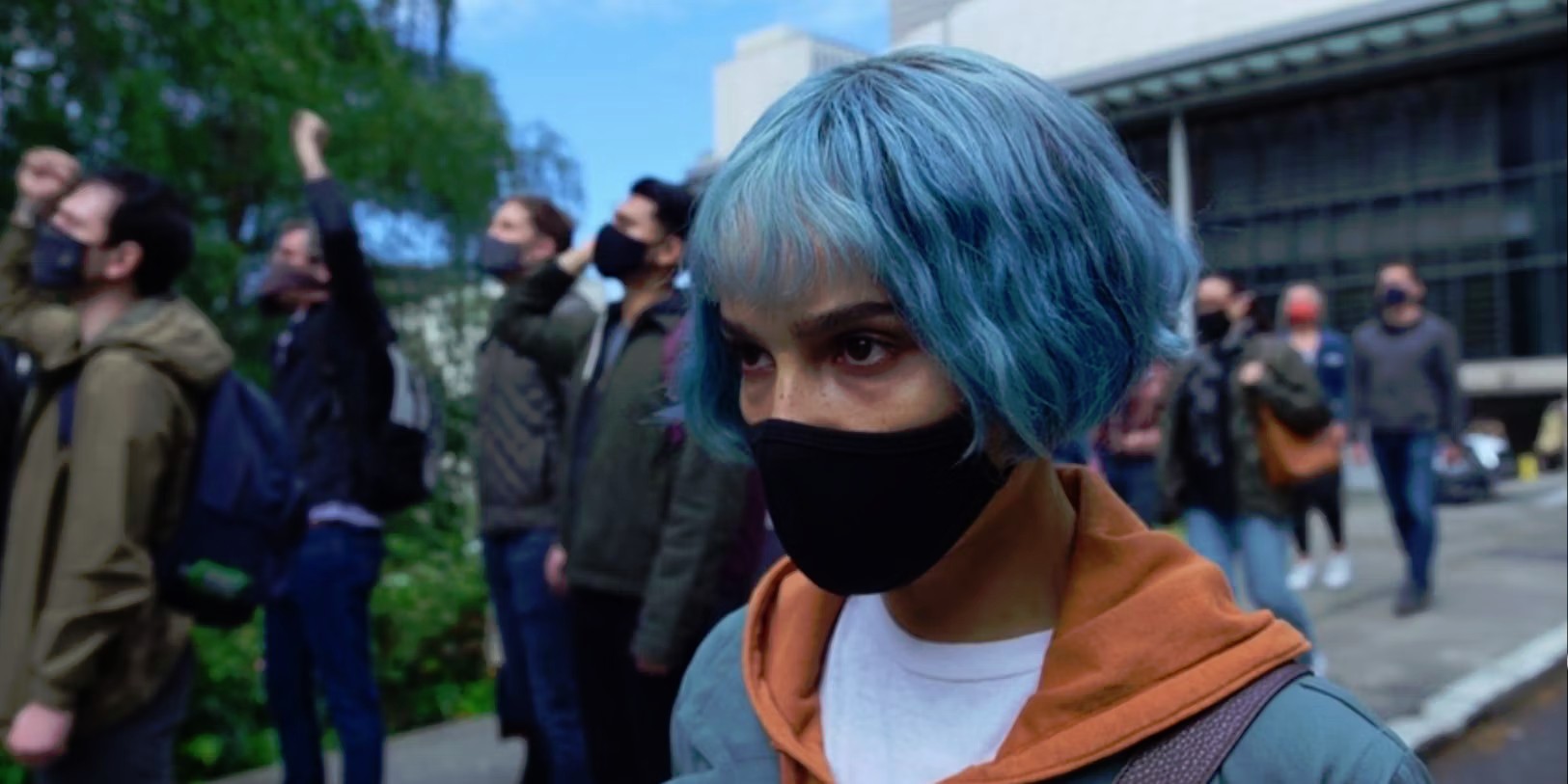 ★★★
★★★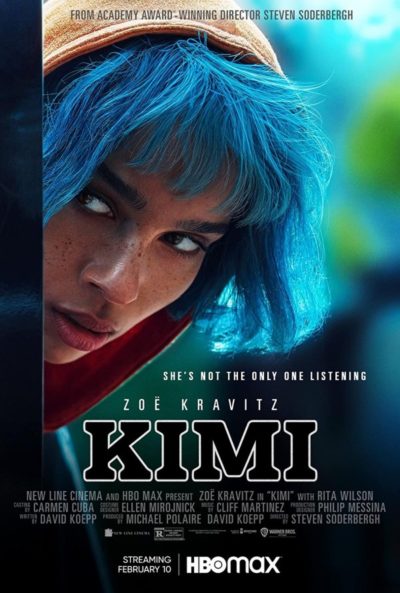 Kimi indirectly discusses this attitude, but also seems to make a clear point that there is a need to leave your own four walls sometimes, because not everything can be handled from your laptop. That said, it’s quite disturbing how much
Kimi indirectly discusses this attitude, but also seems to make a clear point that there is a need to leave your own four walls sometimes, because not everything can be handled from your laptop. That said, it’s quite disturbing how much 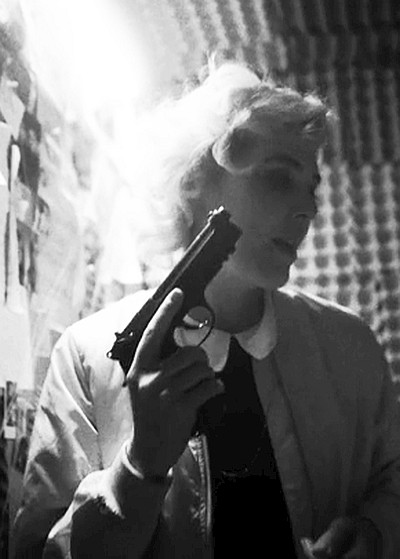
 I did not originally expect to be reviewing this here. I watched it because of the technical elements, which I’ll get to in a bit. However, by the end, it does qualify – though you certainly wouldn’t think so from how things begin. It gets underway with Lili (Puig) waiting for a date arranged over the Internet with Eduardo (Alcantara). He shows up late, very apologetic after having been mugged, and having had his phone taken, but is utterly charming, and the chemistry with Lili is immediate. They end up back at his place for dinner. But as he’s cooking on the kitchen, the tone of the evening changes, when she hears his supposedly stolen phone going off in his jacket…
I did not originally expect to be reviewing this here. I watched it because of the technical elements, which I’ll get to in a bit. However, by the end, it does qualify – though you certainly wouldn’t think so from how things begin. It gets underway with Lili (Puig) waiting for a date arranged over the Internet with Eduardo (Alcantara). He shows up late, very apologetic after having been mugged, and having had his phone taken, but is utterly charming, and the chemistry with Lili is immediate. They end up back at his place for dinner. But as he’s cooking on the kitchen, the tone of the evening changes, when she hears his supposedly stolen phone going off in his jacket…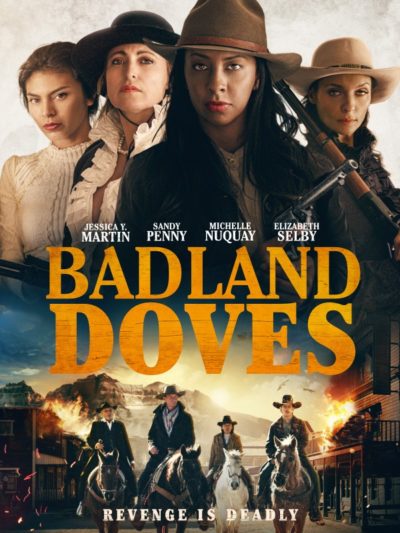 I am contractually obliged to appreciate at least somewhat, any film made here in Arizona. This certainly fits the bill, having been shot at places like the Pioneer Living History Museum, Sitgreaves National Forest and Winters Film Group Studio. However, it is a fairly basic tale of two-pronged revenge, with significant pacing issues. The proceedings only come to life in the last 20 minutes – and barely that. Initially, matters are more than a tad confusing, as we jump about in time and space without apparent notification. But the basic principal is eventually established.
I am contractually obliged to appreciate at least somewhat, any film made here in Arizona. This certainly fits the bill, having been shot at places like the Pioneer Living History Museum, Sitgreaves National Forest and Winters Film Group Studio. However, it is a fairly basic tale of two-pronged revenge, with significant pacing issues. The proceedings only come to life in the last 20 minutes – and barely that. Initially, matters are more than a tad confusing, as we jump about in time and space without apparent notification. But the basic principal is eventually established.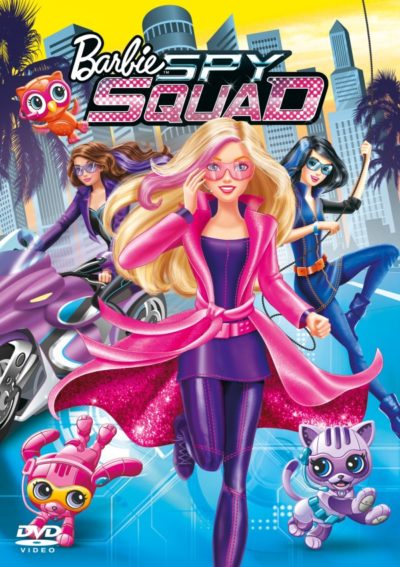 Ah, the things I watch for you people. Safe to say, this probably hit new heights of “I am not the target demographic”, but it’s hard to argue it is outside the remit of the site. To the film’s credit, this is not as bad as I feared it might be. If I had an eight-year-old daughter – such a shame this turned up about 25 years too late! – there would be far worse things to have inflicted on me. Not that I’ll exactly be chasing down any of the other
Ah, the things I watch for you people. Safe to say, this probably hit new heights of “I am not the target demographic”, but it’s hard to argue it is outside the remit of the site. To the film’s credit, this is not as bad as I feared it might be. If I had an eight-year-old daughter – such a shame this turned up about 25 years too late! – there would be far worse things to have inflicted on me. Not that I’ll exactly be chasing down any of the other